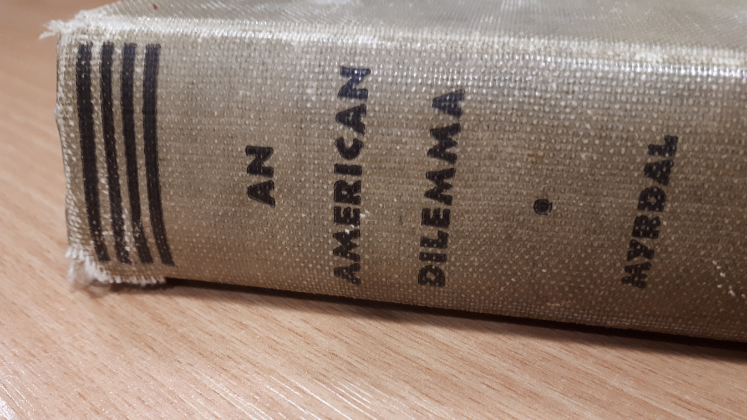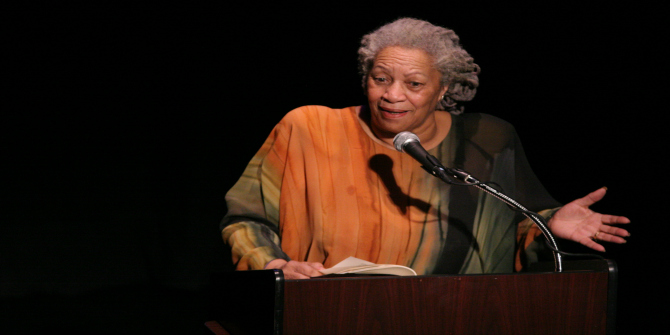
In The Poet’s Mind, Gregory Tate considers why and how psychological analysis became an increasingly important element of poetic theory and practice in the mid-nineteenth century, a time when the discipline of psychology was emerging alongside the growing recognition that the workings of the mind might be understood using the analytical methods of science. Tate provides a good overview of recent work on Victorian literature and psychology, writes Michelle Faubert, though some gaps in research remain.
 The Poet’s Mind: The Psychology of Victorian Poetry 1830-1870. Gregory Tate. Oxford University Press. November 2012.
The Poet’s Mind: The Psychology of Victorian Poetry 1830-1870. Gregory Tate. Oxford University Press. November 2012.
With the spring 2013 publication of the Diagnostic and Statistical Manual of Mental Disorders, Fifth Edition (commonly known as the DSM-5), the question of psychology’s relationship to wider culture has become a matter of popular concern. Media outlets around the Western world have exploded with debate regarding the far-ranging effects of the medicalization of what many consider to be normal human experience. For example, in the previous versions of the DSM, grief was excluded as a depressive disorder, but the new DSM-5 defines bereavement as an illness if it is judged excessive by a psychologist. Many critics ask, how do such changes in the official definition of mental illness affect the individual’s sense of identity if such normal emotions as grief become a mark of one’s precarious mental health?
This consideration should also lead us to query how the literary world may be adversely affected by the narrowing definition of acceptable human expression. Arguably, if the DSM-V had been published in the Victorian period, Alfred Tennyson’s great elegy, In Memoriam, might have been written off as the obsessive musing of an untreated depressive. Yet, in The Poet’s Mind, Gregory Tate, Lecturer in English Literature at the University of Surrey, illuminates the interplay of Victorian psychology and literature as a creative partnership. Positing that many Victorian poets, like the Romantics, believed subjective musing on mental processes to be the proper subject for poetry, Tate shows how psychology was productive of, and not inimical to, powerful verse.
Tate’s subject might lend itself to obscurity and abstraction, for he discusses the least empirical of the sciences, but his writing style is admirably clear. The book describes how “Victorian poets inherited from their Romantic forebears a preoccupation with what Clifford Siskin has called ‘the modern psychologised subject: a mind, capable of limitless growth, that takes itself to be the primary object of its own inquiries’” (p.5). This is heady stuff, so to speak. But Tate explains this topic concretely and in a way that will not repel a non-scholarly audience – a difficult task and worthy goal.
One of the main strains in Tate’s argument is that, although the Victorians inherited from the Romantics an interest in the workings of the mind as a suitable subject for poetry, they also struggled to accommodate this interest with their belief, also inherited from the Romantics, that poetry should convey emotion and sensual immediacy (p.14). In Chapter One, Tate focuses on the self-analytical speakers in poems such as Robert Browning’s Pauline and Tennyson’s Ulysses to identify “the question that preoccupies much of Victorian psychological poetry,” in his view: “whether the mind should be understood in physical or metaphysical terms, as an embodied process, or a soul, or both” (p.26). His conclusion makes a claim for the role of both “mind” and “soul” in the poets’ early works (p.56).
This conclusion leads us, by way of contrast, to a consideration of Chapter Four, which investigates George Eliot’s apparent preference for the soul as the proper subject of poetry. Tate illuminates the odd disconnect between her novels, which demonstrate so much psychological realism, and her poetry, particularly The Spanish Gypsy and The Legend of Jubal. “Eliot saw poetic form as enabling a different approach to the mind, distinct from the ‘realistic’ examinations of mental processes found in her novels” (pp.125-6), Tate argues, a position that he calls “outdated” by her time (p.21). Certainly, it did not reflect Eliot’s considerable knowledge about psychology, to which she was personally privy through her relationships with Herbert Spencer and long-time partner George Henry Lewes. Yet, The Spanish Gypsy contains the “Lamarckian notion of the inheritance of acquired characteristics,” such as that “racial experience . . . shapes the individual embodied psyche” (p.133), an idea delineated in both writers’ psychological writing. Given her vast store of psychological knowledge, then, and her willingness to include it in her verse to some degree, to what does Tate attribute Eliot’s refusal to shape her poetic oeuvre around this increasingly popular topic in Victorian poetry? He argues that Eliot’s “belief in poetry’s cultural and moral authority” (p.127) convinced her that the elevated topic of the soul’s relation to personal identity required verse for expression (p.152). Tate notes that she was influenced by Wordsworth with regard to how the memory forms the self, as her sonnet sequence “Sister and Brother” shows (pp.149-50), but she did not follow the Romantic poet’s lead, adumbrated in the Preface to the Lyrical Ballads, in making the psychological theory of associationism a major element of her poetry. Eliot was evidently critical of the extent to which psychology should influence the world of art and define our notions of human identity. Given the questions that the DSM-V poses to our contemporary world, I wonder if Eliot may thus be a poet for our times, old-fashioned as her ideas may have seemed in the Victorian period.
Tate’s monograph contributes to an increasingly popular approach to nineteenth-century literary studies that explores the relationship between science and literature after the Enlightenment, when science was prioritized as revelatory of enduring truths about the world and human nature. Monographs on this topic abound, and Tate provides a good overview of recent work on Victorian literature and psychology. However, his research into the history of and criticism about Romanticism and psychology is insufficient, which is damaging to his argument because it concerns the Victorian poets’ response to Romantic-era psychological poetry and theory. In particular, Tate focuses on associationism, a topic that has been explored extensively in Romantic studies since the 1930s. One might contend that, since the bulk of these critical works are articles, Tate’s exclusion of them is excusable; after all, his period is Victorianism, not Romanticism, and he must impose limits on his research or risk writing an unwieldy tome. Yet, it seems remiss not to include some reference to such recent monographs as Cairns Craig’sAssociationism and the Literary Imagination, 1739-1939 and David Vallins’ Coleridge and the Psychology of Romanticism. The conspicuous absence of such works undermines the reader’s confidence in the critical and historical research upon which Tate’s argument is based, but the monograph remains an enlightening view of psychology and Victorian poetry.
———————————————–
Michelle Faubert is an Associate Professor of Romantic literature at the University of Manitoba in Winnipeg, Canada, and a Visiting Fellow at Northumbria University. Her publications include the monograph Rhyming Reason: The Poetry of Romantic-Era Psychologists; articles on Romantic-era literature and the history of madness, psychology, and suicide in such journals as Essays in Romanticism, European Romantic Review, Victorian Literature and Culture, The European Spectator, and Essays in Romanticism; and essays on the poetry of early psychologists and the gendered perception of madness during the Romantic period. Read more reviews by Michelle.








1 Comments